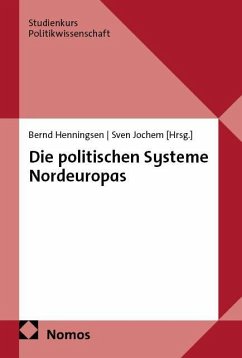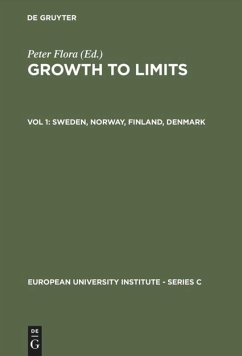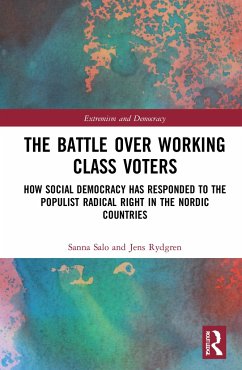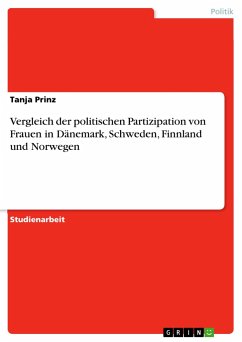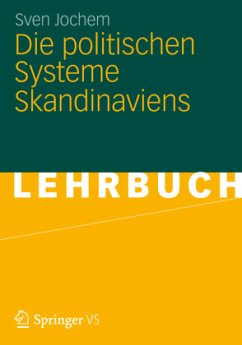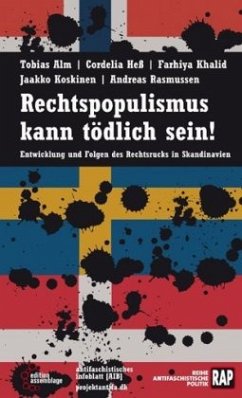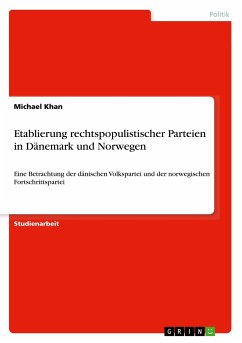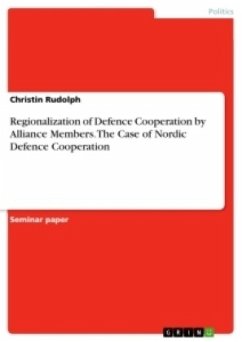
Regionalization of Defence Cooperation by Alliance Members. The Case of Nordic Defence Cooperation

PAYBACK Punkte
0 °P sammeln!
Seminar paper from the year 2018 in the subject Politics - International Politics - Topic: Peace and Conflict Studies, Security, grade: B, University of Tartu (Johan Skytte Institute of Political Studies), course: SORG.04.010: Security Politics, language: English, abstract: This paper asks why states that are already members of alliances regionalize their defence cooperation. Or, in the selected case, why do Denmark, Finland, Iceland, Norway and Sweden cooperate in the framework of Nordic Defence Cooperation (NORDEFCO) although they are either member of NATO, the EU or both? In a globalized in...
Seminar paper from the year 2018 in the subject Politics - International Politics - Topic: Peace and Conflict Studies, Security, grade: B, University of Tartu (Johan Skytte Institute of Political Studies), course: SORG.04.010: Security Politics, language: English, abstract: This paper asks why states that are already members of alliances regionalize their defence cooperation. Or, in the selected case, why do Denmark, Finland, Iceland, Norway and Sweden cooperate in the framework of Nordic Defence Cooperation (NORDEFCO) although they are either member of NATO, the EU or both? In a globalized interdependent world, membership in multiple alliances and frameworks of cooperation is not rare. Cooperation on defence issues is not the only one having an influence on security but the area with the most direct one. Taking the diverging interests and problems of European states such as capability gaps into account that create different needs and possibilities, it is plausible to theorize that regionalization of defence cooperation is caused by a dissatisfaction how the existing alliance addresses those needs. The main motivations stated by politicians are economic benefits and great homogeneity of the Nordic security community. Deduced from that I propose two hypotheses, one that sees the perceived need to save funds as proportional to the probability of seeking regionalization and the other putting the urgency of such a need into the same positive relationship to the regionalization of defence cooperation.The third hypothesis relates the regionalization back to the defence-related alliance(s) the respective states are already part of by suggesting that regionalization is a way to exert influence over alliances that a state is not part of. There are scholars who argue that what NORDEFCO aims to do is better handled directly through NATO or the EU because duplication is a real risk leading to a less efficient utilization of resources (Petersson, 2010c; Hofmann, 2009)or decrease the centrality of NATO and the EU as institutions (Stiftung Wissenschaft und Politik, 2015). Regionalization of defence cooperation is an ambivalent policy that is not always perceived positively and does not automatically create more security.





